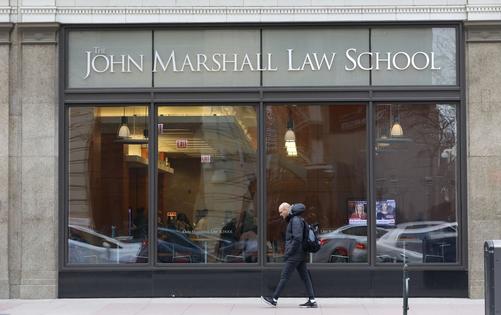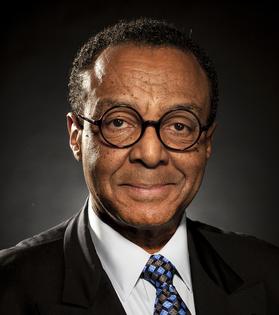Yes, There is a Case for Using Offensive Words in Classrooms — in Certain Situations
Should white professors be allowed to use the N-word in class, especially when it is an essential element of the lesson that is being taught?
That question caused an uproar at the University of Illinois at Chicago’s John Marshall Law School this past winter that still hasn’t quite gone away, the professor at the center of the controversy told me.
“They put me on this ridiculous ‘indefinite suspension,’ ” law professor Jason Kilborn told me. “But it was leave with full pay. So, at least I got a vacation for this entire spring semester.”
Still, he said, he’d rather teach his classes, which were canceled during the investigation. Students had called for Kilborn to be disciplined after he wrote a Civil Procedure exam related to employment discrimination that included redacted versions of the epithets “n-----” and “b----,” which he described as “profane expressions for African Americans and women.”
“What bothers me is that we are not only incapable of having intelligent conversations about these issues (employment discrimination in this case),” he said, “but if we can’t even bring up a respectfully abbreviated version of a word that comes up in the employment discrimination context, then where are the boundaries?”
He’s hardly alone in that view, even among his would-be critics. For example, Kathryn Rubino, a progressive-leaning columnist for the legal website AboveTheLaw.com, wrote that she was prepared to attack Kilborn’s word choices until she learned that he actually had respectfully used the redacted version of the words, not their spelled-out versions.
Noting that she spends “an unfortunate amount of time writing about law professors’ use of the N-word,” in this case the prof appeared to do the right thing. “No one wants to be in a place where discussing the way racism shapes the legal system is off limits,” she wrote.
Indeed, and as well-intentioned as some of the efforts by the political correctness police may be, I also would caution, the students aren’t always right.
A white first-year student at Rutgers Law School in Newark, for example, kicked up a commotion during a Zoom meeting with a professor and other students by quoting the N-word from a 1993 murder case before the New Jersey Supreme Court.
At Emory University in Atlanta, a law school professor was placed on administrative leave last year for using racial slurs quoted from a race discrimination case. The professor was later reinstated.
Such disputes tend to boil down to a clash between the First Amendment free speech rights of students and faculty vs. the eternal question of how a law school, as a statement from Rutgers officials put it, can best “create classroom environments in which all of our students feel seen, heard, valued and respected.”
I would suggest, for starters, that the arc of justice and fairness should bend toward freedom of expression, clarity and open, honest debate, particularly in a law school, which as an institution is supposedly grounded in such principles.
That doesn’t apply only to law schools, though. Timothy Boudreau, a tenured professor at Central Michigan University, was fired for repeating the slur in a journalism law class as he read from a court opinion that was all about how First Amendment law treats that epithet.
Maybe he used the offensive words too much or with too little sensitivity. I won’t even try to judge that case from a distance. But, as a former J-school major myself, I think journalism professors and students should aim for accuracy and clarity without “sugarcoating,” as one of my old journalism profs used to say, yet also without rubbing new salt into old wounds.
Sometimes the old editorial slogan, “When in doubt, leave it out,” should be deployed.
But neither should we sugarcoat — in ways that, as John McWhorter, author of the new “Nine Nasty Words: English in the Gutter: Then, Now and Forever” puts it, treats his fellow African Americans — like me — as being too “fragile” to deal with honest language.
With that, I am reminded of the Marshall law student who reportedly said that the words on Kilborn’s exam gave her “heart palpitations.” Perhaps she should consider changing her career choice.
After all, if anyone should be prepared to deal unflinchingly with the world’s brutal realities and often brutal language, it is lawyers and journalists. Words are our business.
========
(E-mail Clarence Page at cpage@chicagotribune.com.)
©2021 Clarence Page. Distributed by Tribune Content Agency, LLC.
(c) 2021 CLARENCE PAGE DISTRIBUTED BY TRIBUNE MEDIA SERVICES, INC.










